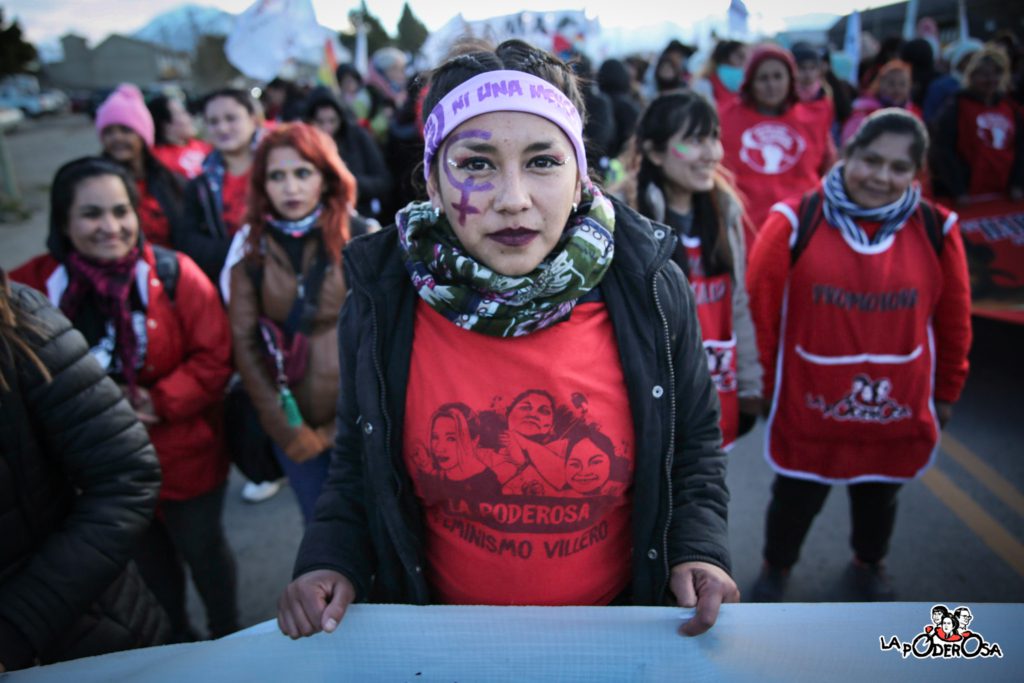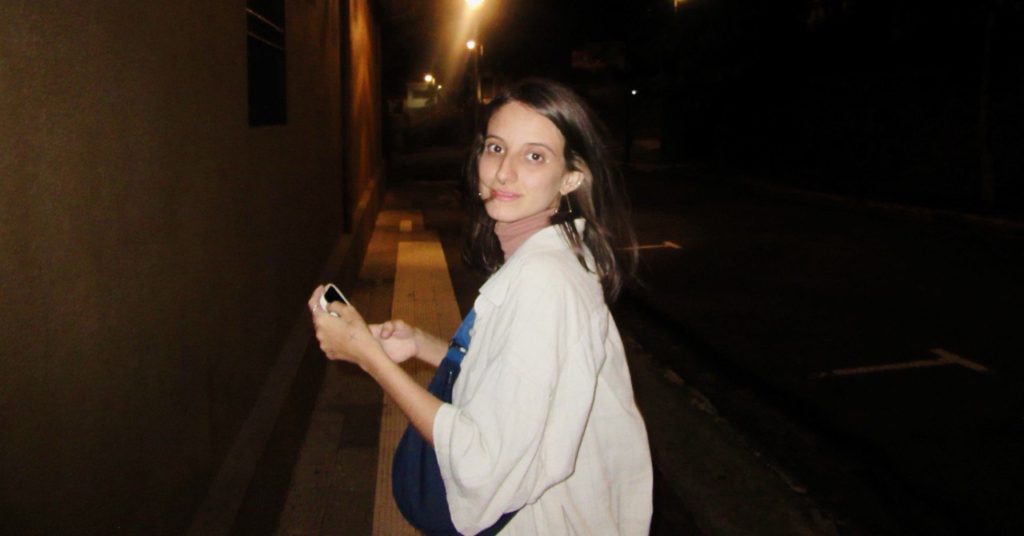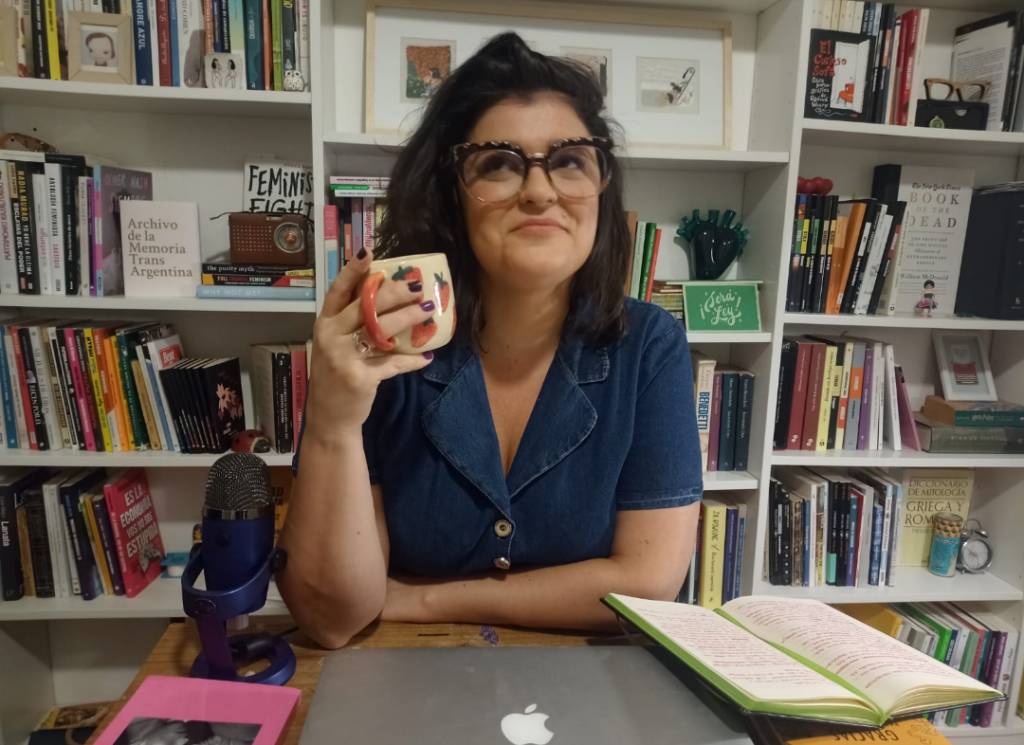By Camila Ruiz Segovia, Guillermo Rodriguez García and Naomi Bernaldez
Today, 8th March, International Women’s Day, Amnesty International acknowledges the struggle and reporting of seven individuals and collectives defending gender justice and diversity in the Americas. As part of our regional “Exprésate” (Speak up) campaign on the right to protest, we support efforts that validate the memory, mobilization and expression of women, LGBTTTQIAPN+ people and allies who have supported progress towards a life of dignity and equality and free from violence and discrimination on the continent, and who continue to resist in the face of hostile environments.
The reporting work of these individuals and collectives in defence of rights and memory is just a small sample of the many voices on the continent speaking out against the multiple forms of violence and inequalities still suffered by women and LGBTTTQIAPN+ people in the Americas.
According to the latest available figures from the Economic Commission for Latin America and the Caribbean (ECLAC), at least 4,000 women were murdered in 26 countries of Latin America and the Caribbean in 2022, although the true extent of this scourge is uncertain, as many countries in the region do not typify femicide as per international standards or fail to report deadly attacks.
The Inter-American Commission on Human Rights (IACHR) registered the murder of more than 150 trans and gender diverse people between January 2023 and the end of January 2024, most of them trans women. The IACHR also estimated that trans women in our region have an average life expectancy of around 35 years.
Latin American and Caribbean women and gender diverse feminized persons continue to bear a disproportionate burden of care work, which is often unpaid and unrecognized. According to ECLAC, women spend more than twice as much time on unpaid domestic work as men. This limits their economic autonomy, in a context of inadequate state policies to guarantee income protection and social security.
With regard to women‘s reproductive autonomy and abortion, although there has been significant progress in the region, stigmatization, criminalization and new threats continue to jeopardize those rights that have been won. Amnesty International’s latest report An Unstoppable Movement finds that women and people defending the right to abortion face various attacks, including physical and verbal aggression, threats, criminal prosecution and arbitrary detention, all of which are intensifying with the advance of anti-rights groups in the region.
The defence, mobilization and protests of women and LGBTTTQIAPN+ people have been crucial to the recognition of and access to human rights such as equal marriage, free, safe and accessible abortion, and trans identity. It has also been key to generating new narratives that break down stigma and reclaim gender justice and sexual and gender diversity.
For all of the above reasons, on this 8th March we are raising our voices with seven people and collectives from Argentina, Costa Rica, Cuba, El Salvador, Nicaragua and Mexico who are fighting for a fairer, freer and more equal region. This 8th March, learn about their work, share with others and support their efforts. Speak up for gender justice and sexual and gender diversities throughout the Americas!
Fugitivas MX was set up by three women journalists and a historian to investigate a number of issues in Mexico’s Yucatan peninsula from a human rights, gender, antimilitarist, anticapacitist and antiracist perspective.
Their latest project is audio journalism in the form of a podcast, created and broadcast from Yucatan. This provides relevant information on human rights, gender, the environment, health and culture as a means of making visible and offering solutions to the violence, racism and classism that plague Mexico, and the Yucatan peninsula in particular.
Fleeing sadness, one of the most recent episodes of their podcast, explores the question of whether it is possible to protest and have fun at the same time, looking at different moments when the LGBTTTQIAPN+ community in Mexico has used revelry and spaces of celebration as a way of affirming their identity and rights, building community and providing accompaniment. The episode also reports on the protests that followed the murder of le magistrade Jesús Ociel Baena, Latin America’s first non-binary magistrate, reminding us that patriarchal violence remains a latent and deadly risk for the LGBTTTQIAPN+ community in our region.
In another episode, Fleeing mistreatment, Fugitivas MX share two stories about the struggles of indigenous defenders and collectives in Mexico: the story of Alejandro Torres Chocolatl, a Nahua defender who was criminalized for protesting in defence of his territory in Puebla, and the story of a group of Mayan women organizing against gender-based violence in Yucatán.

La Garganta Poderosa (The Powerful Throat) is a self-managed independent media platform that has been active now for more than 11 years, focusing on making visible the reality of Argentina’s popular or working class neighbourhoods, as written by the people who live in them.
Their work consists of portraying the reality and the many social problems experienced in their neighbourhoods, providing a counter-narrative to the stigmatizing perspectives of the non-pluralistic mass media. Their reporting also explores the challenges communities come up against in finding a collective response to the problems they face.
For their latest project, they compiled a comprehensive report of the process of organization and self-management of the women and gender nonconforming persons from popular neighbourhoods who participated in the 36th Plurinational Meeting of Women and Gender Nonconforming Persons, held in the city of Bariloche in Argentina. Their reporting, published mainly in graphic and audiovisual format on their social networks, gives an account of the Plurinational Meeting as a space for collective organization and politicization for the hundreds of women who participated.

Karla is a Cuban journalist based in Costa Rica since 2017, where she completed her studies after being expelled from the Marta Abreu Central University of Cuba in April 2017 for her political activism. She applied for political refuge in Costa Rica in March 2021, after the Cuban government banned her from entering the country, a few months before the 11 July protests and the mass imprisonment and forced exile of hundreds of human rights activists and journalists. She was granted refugee status in August 2021.
Her experience and interests include covering regional and Costa Rican politics, human rights in Cuba, sexual and reproductive rights, the LGBTTTQIAPN+ community, violence against women, and the situation of migrants and refugees.
Since 2019 she has been working as a journalist and editor of the audiovisual magazine ADN Cuba, and as a researcher for the NGO Cubalex. Over these five years, she has also collaborated with Latin American media on issues of human rights, the LGBTTTQIAPN+ community, refugees and Costa Rican politics.
In her latest report, Karla tells the story of the Yo Sí Te Creo en Cuba (I Believe You in Cuba) initiative, from its creation as an independent platform in 2019 to the present day. Yo Sí Te Creo en Cuba is a women’s group offering comprehensive accompaniment to women and people affected by sexual and gender violence. The initiative was born at a time when the Cuban state was failing to address gender violence in the country, including in its most serious iteration of femicide.

Laura Loncopan Berti, Emiliana Cortona and Matías Subat are two journalists and a photojournalist from Argentina with an interest in human rights, feminist and trans feminist agendas. Laura works as an editor at the Río Negro newspaper and has covered the struggle for legal, safe and free abortion. Emiliana works as a coordinator for Rio Negro Radio and the podcast series of Editorial Río Negro, and has won a number of awards, including the Juana Manso prize for two productions with a feminist perspective. Matías Subat is a freelance photojournalist with a background in printed media, digital media and social networks, and is currently working for the Neuquén branch of the Río Negro newspaper.
Together, they researched the history of the collective Las Peludas (which translates as “Hairy women”), an organization that fights against sexist violence in Chos Malal, in the north of Neuquén in Argentina. Las Peludas is made up of teachers from all levels and disciplines and was born in the context of the mass mobilizations that took place in Argentina in 2015 to demand an end to gender violence and femicides under the slogan Ni Una Menos (Not One Less). The name Las Peludas was chosen because it represented two different elements. Firstly, it was a rejection of the norms and stereotypes imposed on women and femininities, where hair removal is synonymous with beauty. Secondly, it set limits on those exercising macho violence: “If you mess with us, things will get hairy (you’ll be in trouble).”
In their research, Laura, Emiliana and Matías explore the strategies used by Las Peludas to permeate a community with strong rural traditions, far from the provincial capital; the resistance they faced and the support they received and continue to receive; the impact of four femicides in five years; and the challenges posed by the presidency of Milei, who has declared himself “an enemy of feminisms”.

Marina Abiuso is an Argentinean journalist with experience in the printed media, radio and television. She has worked for Editorial Perfil, the Noticias magazine, and Telenoche and A Dos Voces, among other programmes. She was the first gender editor for TN and El Trece news bulletins.
She co-produced an episode of Radio Ambulante on her agenda of gender, diversity and human rights. She is currently working on her first novel and coordinates the publication Punto de Encuentro (Meeting Point), an Amnesty International Argentina initiative to support and amplify the work of feminist journalists throughout the country. As an activist, she was part of the group that called for the first mass mobilization under the slogan #NiUnaMenos in June 2015, and actively participated in actions to legalize abortion in 2020.
In her latest project La Red, a three-part podcast, Marina tells the story of the socorristas (lifeguards), a network of women in different locations around Argentina who support and accompany those who decide to terminate their pregnancies. Speaking with these women in different provinces of the country, Marina explores the changing role of the lifeguards before and after the passage of Argentina’s abortion law. The podcast also reflects on the new challenges they face as a result of the new government that is seeking to restrict the right to choose once again.
Las Subversivas is a Nicaraguan feminist collective established in 2019, the result of a group research process aimed at understanding the violence perpetrated against young female student activists during the socio-political conflict that erupted in Nicaragua in 2018.
Cuerpxs que trazan (Bodies that draw) is a Central American space for trans feminist writing and artistic expression that seeks to experiment, create and explore art as a social, cultural and political commitment.
Revista La Brújula is a feminist and multidisciplinary digital media platform made up of journalists, activists, academics and arts professionals. It aims to become a benchmark for feminist journalism in both the country and the Central American region.
Together, these three collectives promoted the investigative memory project Somos otrxs lenguajes (We are other languages), the product of the conversation “Trans feminist Writing in Central America: No to muses & Bodies that draw” (Escritura transfeminista en Centroamérica: No musas & cuerpxs que trazan), held during the 15th Latin American and Caribbean Feminist Meeting in El Salvador.
The project was born out of the need, the urgency and above all the desire of trans feminist artists from Central America to come together to share experiences and to use the opportunity for reflecting on their voices in writing as a means of resistance in repressive environments.
This Nicaraguan collective, established in 2020, has focused on producing research and digital self-care guides for LGBTTTQIAPN+ activists living in contexts of socio-political crisis and using social media as a trench for their struggle. Through art, the collective has also created trans feminist collective memory products, translating their content into disability and neuro-divergent friendly formats. For security reasons and in the face of the state repression that Nicaragua is experiencing, this collective has preferred to remain anonymous.
Their latest project, a radio series called Enjambre (Swarm), tells the story of how LGBTTTQIAPN+ feminist activism is currently being experienced in Nicaragua. Using a variety of sound effects and short, incisive chapters, this radio drama depicts the challenges activists face in mobilizing in a repressive environment, and the different strategies they have developed to persist in their struggle and support each other in the face of adversity.
Camila Ruiz Segovia and Guillermo Rodríguez García are Campaigners at Amnesty International. Naomi Bernaldez is Research and Campaigns Assistant at Amnesty International.
Tags: Human Rights, Mexico, Argentina, Latin america, Women Rights.
Cuba: The State represses women human rights defenders
Afghanistan: Accountability Mechanism Marks Historic Moment
Israel/OPT: Bank activist Awda Al-Hathaleen demands justice and accountability
Georgia: Court order on five independent NGOs a blow to freedom of association
Honduras: Authorities must to guarantee justice for the murder of Juan López
Contact Us
Regional - Américas
Calle Luz Saviñón 519, Colonia del Valle Benito Juárez, 03100. Ciudad de México, México
Global
1 Easton Street, London WC1X 0DW. Reino Unido.